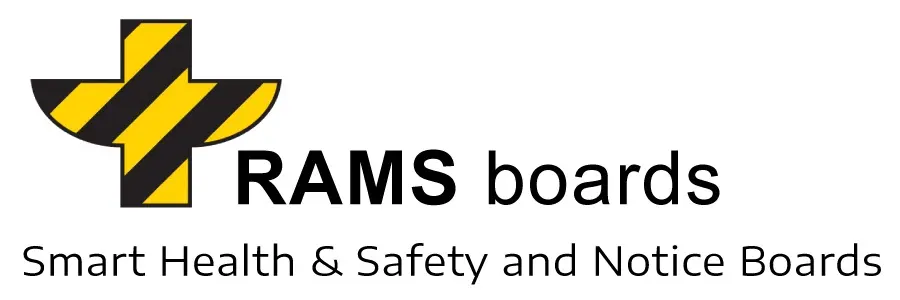Enhancing Safety and Efficiency in Oil and Gas Fields with RAMS boards
The oil and gas industry, known for its challenging and hazardous environments, requires stringent safety measures, especially in drilling areas and distant pipeline inspection points. RAMS boards have become a crucial component in ensuring safety and effective communication in these settings. With successful implementations at sites like Costain Oil Gas & Process Limited and Amey Power Services Ltd, RAMS boards are proving to be invaluable in the sector.
Challenges in Oil and Gas Operations
Oil and gas fields, particularly in drilling and pipeline inspection areas, pose significant risks due to the nature of the work, remote locations, and the handling of hazardous materials. Ensuring the safety of personnel and compliance with stringent industry regulations is paramount. Effective communication of safety protocols and emergency procedures is vital in these high-risk environments.
Role of RAMS boards in Oil and Gas Safety
RAMS boards address these challenges by providing a centralized, highly visible location for displaying essential safety information, guidelines, and emergency contacts. Their role in the oil and gas sector includes:
| Role of RAMS boards | Description in Oil and Gas Safety |
|---|---|
| High Visibility and Durability | Designed to withstand harsh and variable conditions typical in oil and gas fields, ensuring that critical information remains accessible and visible. |
| Centralized Information Display | Providing a one-stop location for essential safety and operational information, crucial for remote and isolated sites. |
| Ease of Access to Safety Equipment | Equipped with storage for Personal Protective Equipment (PPE), ensuring that safety equipment is readily available to workers. |
| Compliance with Industry Standards | Displaying regulatory compliance documents and safety guidelines helps sites meet the oil and gas industry’s rigorous safety standards. |
| Enhanced Emergency Preparedness | Facilitating quick and effective response in emergencies through clear display of procedures and protocols. |
| Environmental Protection Information | Displaying environmental protection guidelines and procedures, aiding in the responsible management of oil and gas operations. |
| Real-time Communication | Providing a platform for real-time updates and communications related to operational changes, hazards, or emergencies. |
| Worker Engagement and Training | Utilizing the boards for training purposes, including displaying safety training schedules, guidelines, and QR codes linked to online training resources. |
Case Studies: RAMS boards in Action
| Site | Impact of RAMS boards |
|---|---|
| Costain Oil Gas & Process Limited – Easington, HU12 0SU | Streamlined safety communications and played a crucial role in daily operations and emergency responses. |
| Nexus Decommissioning Alliance – Moor Row, CA24 3JZ | Instrumental in maintaining high safety standards and providing easy access to critical safety information. |
| RDP North-Project “HUB” | Ensured consistent communication of safety protocols, enhancing the overall safety of the site. |
| Amey Power Services Ltd | Significantly contributed to the management of safety procedures and compliance information. |
| Costain Oil Gas & Process Limited – Gas Compressor, Felindre, Swansea, SA5 7LU | Played a key role in centralizing safety information, contributing to the site`s excellent safety record. |
| Costain Oil Gas & Process Ltd – Peterborough Compressor Station, PE6 7LW | Led to improved safety standards and efficient emergency response mechanisms. |
Impact on Oil and Gas Operations
The integration of RAMS boards into oil and gas operations has several positive impacts:
| Impact Area | Description of Impact |
|---|---|
| Enhancing Safety Standards | Regular exposure to safety protocols displayed on RAMS boards helps reduce accidents and injuries in oil and gas operations. |
| Improving Emergency Response | Clearly displayed emergency procedures and accessible Personal Protective Equipment (PPE) on RAMS boards improve response times in emergencies. |
| Fostering a Culture of Safety Awareness | The presence of RAMS boards emphasizes the importance of safety, promoting a responsible and safety-conscious attitude among workers. |
| Ensuring Regulatory Compliance | Displaying compliance documents and safety guidelines on RAMS boards assists in meeting the stringent regulatory standards of the oil and gas industry. |
| Streamlining Communication | RAMS boards facilitate efficient dissemination of operational updates and safety messages, ensuring all personnel are well-informed. |
| Enhancing Worker Training and Induction | RAMS boards serve as a platform for displaying training information, contributing to the effective induction and ongoing education of workers. |
| Supporting Environmental Protection | Use of RAMS boards to display environmental policies and guidelines helps in promoting sustainable practices in oil and gas operations. |
| Increasing Operational Efficiency | By centralizing crucial information, RAMS boards contribute to the overall efficiency of operations, minimizing downtime and errors. |
Future Prospects and Innovations
The potential for integrating technology with RAMS boards in oil and gas settings, such as digital displays for real-time hazard monitoring and QR codes linked to online training resources, could further enhance their effectiveness. RAMS boards are revolutionizing safety and communication in the oil and gas industry, particularly in drilling areas and distant pipeline inspection points. As demonstrated in various successful implementations, from Costain Oil Gas & Process Limited to Amey Power Services Ltd, these boards are pivotal in promoting a culture of safety, ensuring regulatory compliance, and enhancing overall operational efficiency. As the industry continues to evolve, the role of RAMS boards in fostering safe, efficient, and sustainable operations will undoubtedly grow.
